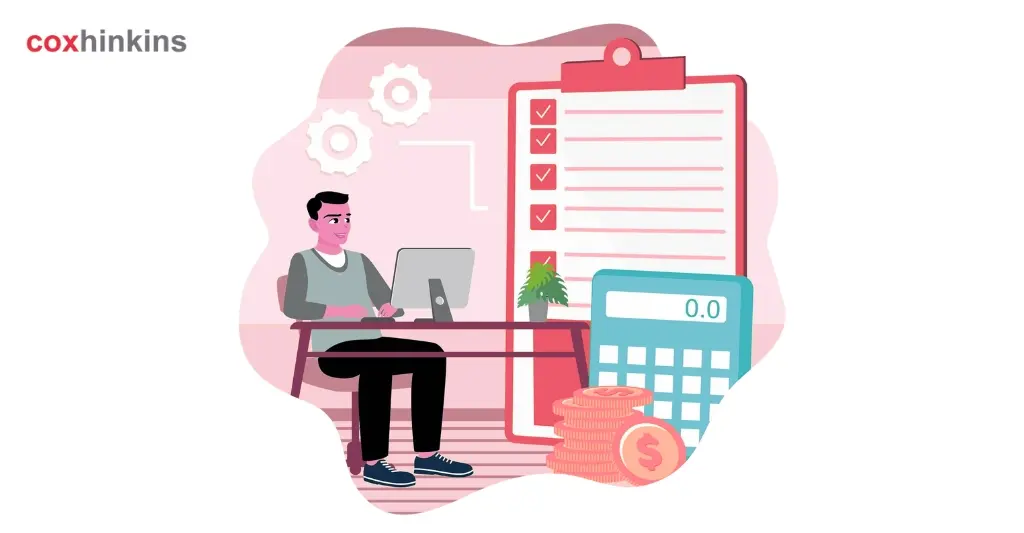
Running a successful online business goes far beyond listing products and generating sales. One of the biggest challenges ecommerce entrepreneurs face is staying on top of their finances. That’s where ecommerce accounting services play a critical role. From accurate bookkeeping to smart tax strategies, the right accounting support ensures your business not only stays compliant but also grows sustainably. For U.S.-based ecommerce owners, understanding financial management can mean the difference between scaling profitably and struggling with costly mistakes.
Why Ecommerce Accounting Matters
Unlike traditional brick-and-mortar stores, ecommerce transactions often involve multiple platforms, payment processors, sales channels, and tax jurisdictions. For example, a single sale on Shopify may trigger payment processing fees, sales tax collection in multiple states, and shipping costs that need to be tracked accurately. Without proper systems in place, it’s easy to lose sight of revenue, expenses, and tax liabilities.
This is why ecommerce accounting matters—it brings structure, accuracy, and strategy to your business finances. Proper accounting ensures you can:
- Track your profit margins by product, channel, and customer type.
- Understand your cash flow and plan for seasonal spikes.
- Claim every possible ecommerce tax deduction.
- Stay compliant with federal and state regulations.
- Make informed decisions about pricing, marketing spend, and expansion.
In short, accounting is not just a compliance task—it’s a growth strategy.
The Role of Ecommerce Bookkeeping
Bookkeeping is the foundation of financial health. With ecommerce bookkeeping, you gain visibility into your daily transactions, inventory costs, and operational expenses. Unlike traditional bookkeeping, ecommerce bookkeeping involves managing data from multiple sources, such as:
- Marketplaces like Amazon, eBay, and Etsy.
- Platforms like Shopify, WooCommerce, or BigCommerce.
- Payment gateways like PayPal, Stripe, and Klarna.
Each platform has its own reporting format, and reconciling these manually can be overwhelming. Professional bookkeepers who specialize in ecommerce can integrate these systems, saving business owners hours of administrative work while ensuring accuracy.
Accurate books also give you real-time insights into inventory turnover, customer acquisition costs, and gross vs. net profit. This data helps you identify which products and sales channels are truly profitable.
Ecommerce Tax Deductions Every Seller Should Know
One of the most overlooked benefits of working with specialized ecommerce accountants is maximizing tax savings. Many online sellers miss out on legitimate ecommerce tax deductions simply because they don’t have a clear understanding of what qualifies.
Here are some common deductions for U.S.-based ecommerce sellers:
- Home office expenses (if you run your store from home).
- Inventory costs and shrinkage.
- Software and tools (Shopify subscriptions, email marketing tools, accounting software).
- Advertising and marketing spend (Facebook Ads, Google Ads, influencer campaigns).
- Shipping and packaging costs.
- Professional services (including accountants, lawyers, and consultants).
The IRS has specific rules about what qualifies, and deductions can vary depending on your business structure (sole proprietorship, LLC, S-Corp). That’s why working with professionals who understand ecommerce-specific tax rules is so important.
Amazon Accountants: Why They’re Different
If you sell on Amazon, you know that managing finances isn’t straightforward. Amazon reports revenue differently than other platforms, deducts fees in multiple categories, and pays out on a schedule that doesn’t always align with sales.
Specialized Amazon accountants help sellers:
- Reconcile sales against payouts accurately.
- Track Amazon FBA fees, referral fees, and storage costs.
- Account for international sales and cross-border taxes.
- Optimize inventory accounting for FBA (First In, First Out vs. Last In, First Out).
Because Amazon generates such large volumes of transactions, mistakes in accounting can quickly add up to thousands in lost profits or tax overpayments. That’s why having an accountant who understands Amazon’s unique ecosystem is invaluable.
Shopify Accounting: Scaling Without Stress
For U.S. entrepreneurs running stores on Shopify, financial management often becomes complicated as the business scales. Shopify integrates with countless apps, payment gateways, and fulfillment providers, which makes transaction tracking more complex than it seems.
Shopify accounting specialists help sellers:
- Automate data imports directly from Shopify into accounting software like QuickBooks or Xero.
- Reconcile transactions with multiple payment processors (Shopify Payments, PayPal, Afterpay).
- Track sales tax liabilities across different states after the Wayfair ruling (which requires ecommerce businesses to collect sales tax in states where they meet certain thresholds).
- Build accurate financial reports to assess product profitability and business performance.
Without specialized support, Shopify sellers risk underreporting revenue or overpaying taxes—two costly mistakes that can harm long-term growth.
Choosing the Right Ecommerce Accounting Services
Not all accountants are created equal. While a traditional CPA may understand small business taxes, they might not be familiar with the unique challenges of ecommerce. When selecting an accounting service, U.S. ecommerce sellers should look for:
- Platform expertise: Experience with Amazon, Shopify, WooCommerce, and other platforms.
- Software integration: Ability to connect tools like QuickBooks, Xero, A2X, or TaxJar seamlessly.
- Tax compliance knowledge: Familiarity with state-level sales tax requirements and ecommerce-specific deductions.
- Scalability: Services that grow with your business, from startup stage to multi-million-dollar enterprise.
- Proactive advice: Accountants who don’t just crunch numbers but provide strategic guidance for growth.
Common Mistakes Ecommerce Businesses Make Without Professional Accounting
Many online sellers try to manage their books alone or rely on generic accountants who lack ecommerce expertise. This often leads to issues like:
- Mixing personal and business expenses, complicating tax filings.
- Missing sales tax deadlines across multiple states.
- Incorrect inventory valuation, leading to distorted profit margins.
- Not tracking ecommerce tax deductions, resulting in higher-than-necessary tax bills.
- Failing to reconcile sales properly, which creates cash flow blind spots.
By contrast, professional ecommerce accounting services ensure your finances are accurate, compliant, and optimized for growth.
The Long-Term Value of Specialized Ecommerce Accountants
When U.S. ecommerce businesses invest in specialized accounting, the benefits go far beyond compliance. Sellers gain:
- Clarity: Know exactly where your money is coming from and where it’s going.
- Confidence: File taxes accurately, claim deductions, and avoid IRS penalties.
- Scalability: Free up time and resources to focus on marketing, product development, and customer service.
- Profitability: Make smarter financial decisions that directly impact your bottom line.
Think of accounting as an investment rather than a cost. With the right systems and professionals in place, your ecommerce business is positioned for long-term success.
Final Thoughts
The ecommerce industry is one of the fastest-growing sectors in the U.S., but with that growth comes complexity. From sales tax compliance to managing multiple sales channels, online sellers face unique financial challenges that traditional businesses don’t.
That’s why partnering with specialized ecommerce accounting services is no longer optional—it’s essential. Whether you’re just starting out on Shopify or scaling an Amazon FBA business, expert accountants can help you stay compliant, maximize deductions, and unlock real profitability.
If you’re serious about building a sustainable ecommerce business, don’t leave your finances to chance. Invest in professional support, and you’ll set your business on the path to long-term success.







